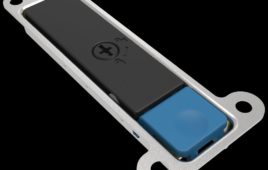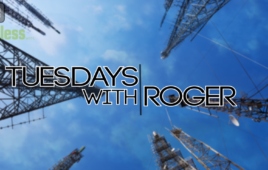Qualcomm on Thursday said it is adding T-Mobile to the ranks of its LTE-Unlicensed (LTE-U) trial partners.
The company said the FCC has granted Special Temporary Authority (STA) for Qualcomm and the Un-carrier to test the interaction of LTE-U and Wi-Fi technology at four locations in Bellevue, Wash., Simi Valley, Calif., Richardson, Texas, and North Las Vegas, Nev.
The authorization indicates the tests will be conducted using up to 10 small cells and access points and up to 20 mobile stations at each location, for a total of 80 LTE-U prototype mobile devices. The equipment will come from multiple manufacturers.
The tests call for round-the-clock operation of both the small cells and mobile devices during the test period to “evaluate the technical performance of pre-commercial LTE-U equipment,” the notice said.
The trial will be conducted on the 1.71-1.755 GHz, 5.15-5.25 GHz and 5.725-5.85 GHz frequencies, according to the authorization. The test period will run from now until October 21, the notice said.
The news follows the FCC’s January approval of a similar experimental request from Qualcomm to conduct LTE-U trials with T-Mobile competitor Verizon. The Verizon tests were slated to take place in North Carolina and Oklahoma between January and June.
Both trials come as part of Qualcomm’s push to roll out LTE-U technology in the commercial marketplace.
In January at CES2016, Qualcomm’s vice president of Small Cells Neville Meijers told Wireless Week Verizon will become the first wireless operator to commercially deploy the technology in the second half of 2016. Though Verizon declined to comment on the matter, the carrier has previously announced plans to test LTE-U small cells with Samsung in hopes of a 2016 commercial launch of the technology.
It seems the T-Mobile now wants a piece of that pie, and for good reason.
Meijers said in January the goal of deploying LTE-U is to “leverage these huge swaths of unlicensed spectrum to help with the data challenge.”
However, though Qualcomm said tests have shown LTE-U can share the band fairly with Wi-Fi – and though the Wi-Fi Alliance has given its blessing to Qualcomm’s testing – some Wi-Fi advocates remain skeptical.
Industry veteran Jay Botelho, of network analysis and security forensics company Savvius, said part of this hesitance is an emotional reaction rather than a logical one. But even thinking rationally, Botelho noted LTE-U would shift the benefits of unlicensed spectrum from the general population to a select group.
“When a venue deploys their own Wi-Fi everyone benefits, even those with devices that don’t have a cellular data plan,” Botelho said. “But when the carrier deploys LTE-U, it is obviously for the benefit of the carrier and their customers only. And if more than one major carrier wants to provide service in the same area cooperation is essential to avoid common Wi-Fi problems like co-channel interference.”
“Cooperation between competitors isn’t something to count on, especially in an industry as fiercely competitive as the cellular industry,” he continued. “But in the end customer experience is key to customer retention, so we may find that Wi-Fi access and performance is better when we let a few major carriers address the issue from a commercial perspective, rather than the Wild West of Wi-Fi that we have today.”
Filed Under: Telecommunications (spectrums)




